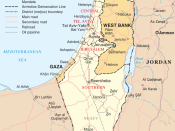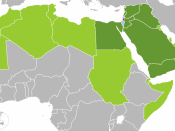The first amendment states, "Congress shall make no law respecting an establishment of religion, or prohibiting the free exercise thereof; or abridging the freedom of speech, or of the press; or the right of the people peaceably to assemble, and to petition the government for a redress of grievances." For example in the United States the best example of this would be public schools. If the school tells students they should follow a certain religion, or pray in school, or if students do practice their religion in school and pray and the school prohibits that, this would be an example of not a separation between church and state. However luckily for the most part United States follows the separation between church and state.
Nowadays there are few countries whose legal system is exclusively religious, though some (mainly Muslim) aspire to this. By contrast a large number have secular systems, and this feature may be built into their legal structure, as in the 1958 French and the 1993 Russian constitutions, or the very first words of the First Amendment to the American Constitution, which came into force in 1789: 'Congress shall make no law respecting an establishment of religion'.
A number of other countries have 'dual' systems in which religious rules govern, and religious courts adjudicate on, such matters as marriage, divorce, family relationships and possibly family property, while a secular system with state courts covers the wider fields of public and commercial law. This was the position in England until the 1850s, and is the case today in Israel, India, and Pakistan.
The State of Israel supports religious institutions, particularly Orthodox Jewish ones, and recognizes the "religious communities" as carried over from those recognized under the British Mandate. These are: Jewish and Christian (Eastern Orthodox,


